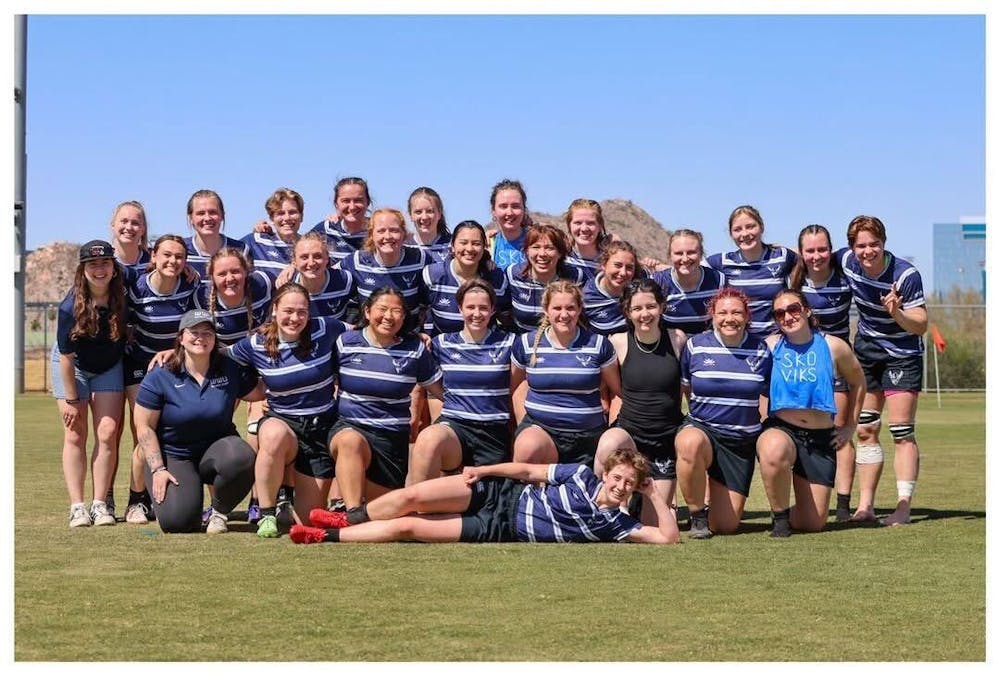The women’s rugby team at Western Washington University made an instagram post after President Donald Trump announced the executive order banning trans women from women’s sports. This post took a stand against the order, stating that “all athletes deserve to play.”
“We’re a super queer team. We’re very supportive of each other, and we’re super community-based as well,” said Lily Airey, team captain of Western’s women’s rugby team. “I also think a lot of people on the team have the same views about things, so it’s easier to support each other.”
This community mindset allowed the team to reinforce that anyone is welcome, regardless of gender identity and sexuality, even after the recent executive orders.
“I think that’s the value and the beauty of what the women’s rugby team did,” said Melynda Huskey, vice president for student affairs at Western. “They affirmatively reached out … the human connection is what people are going to be most impacted by on a day to day basis.”
For the moment, women’s rugby is continuing as it has in the past, though the emphasis on community is even more noticeable. Women’s rugby at Western is not governed by the National Collegiate Athletic Association (NCAA), which has followed up the recent executive order by voting to change its policy on transgender athletes.
“Executive orders do not have the force of law. They express an administration’s policy preference or intention, but they aren’t legally binding by themselves. They have to be followed with other kinds of legal action,” Huskey said.
While the future of trans women competing in women’s rugby is uncertain, it’s more protected than sports under the NCAA.

Clementine Radoff runs with the ball in a game on March 1st, 2025 at Harrington Field against University of Washington. // Photo by Lori Clary
Now, more than ever, students need to rely on their support networks. Uncertainty about what the future holds is a frequent topic of conversation for students in women’s rugby. In some cases, this sense of community is so strong that it overwhelms love for the sport itself.
Clementine Radoff, a first year student and women’s rugby player at Western, expressed concern over LGBTQ+ students possibly being unable to play on the team. She’s already decided that, if worse comes to worst, she will prioritize her community over the sport.
“It’s one of those things where it would be the easiest decision ever to make, but the hardest thing to do because rugby means so much to me, it’s like my life,” Radoff said. “I don’t think there’s almost anyone on the team who would play if [LGBTQ+ athletes] couldn’t play.”
Although she has decided she wouldn’t play if her teammates couldn’t, both team leadership and Huskey seem doubtful that the recent changes will have an effect large enough to reach Western’s women’s rugby team.
Women’s rugby leadership, team members and Huskey have all expressed their uncertainty for the future. Some hope that things remain unchanged, and others fear women’s sports will be changed nationwide.
“I hesitate to make any predictions. I would never have predicted most of the things that have happened so far, so I sure as heck don’t know what might come next,” Huskey said. “I’m not sure that any of us really saw this coming.”
For now, effects of the executive orders on the women’s rugby team are limited to athletes noticing their teammates' increased stressRadoff said. The community aspect of women’s rugby is a safety net for athletes struggling with impacts of the current federal administration.
“Rather than turning against each other, reach out and provide support and care and understanding,” Husky said. “That resilience is how people make it through really hard times.”
Brynley Ferris (she/her) is a first-year student at Western Washington University and an urban planning and sustainable development pre-major. She is a member of the recreational tennis club, and therefore interested in the role and current issues of community at Western. You can reach her at ferrisb@wwu.edu.






